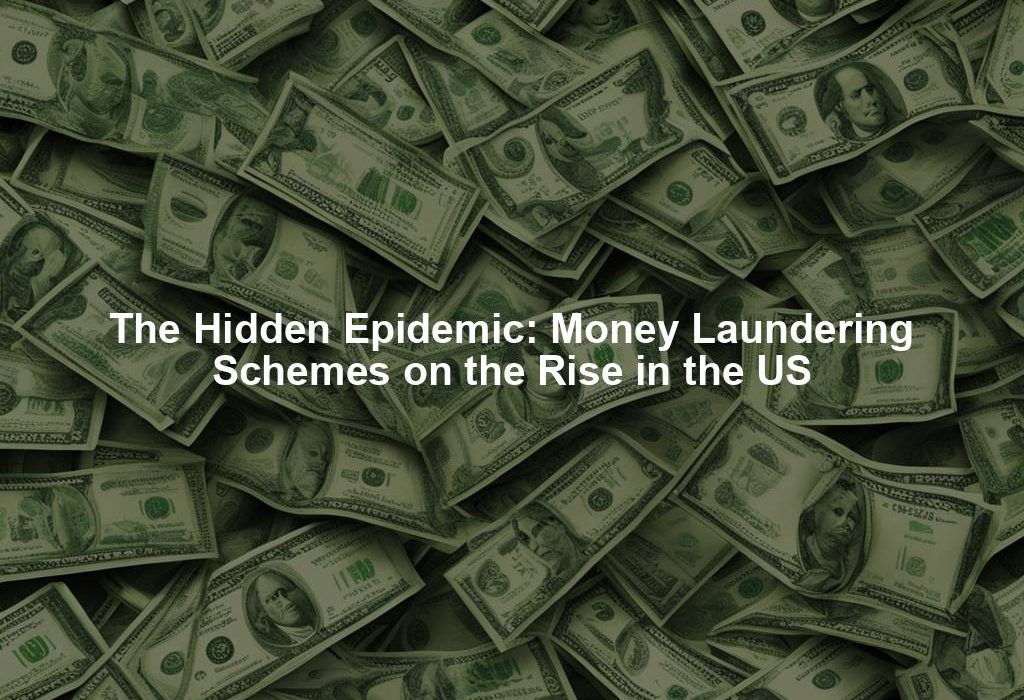The Silent Menace: The Emotional Toll of Money Laundering Schemes in the US
Money laundering evokes a sense of betrayal, injustice, and fear as it threatens the financial integrity of nations worldwide. In the United States, the growing prevalence of money laundering schemes has not only financial repercussions but also deeply affects the fabric of society. Criminals employ intricate methods to conceal the origins of illicit funds, endangering the financial system and national security by fueling criminal activities and terrorism.
At its core, money laundering involves criminals camouflaging the proceeds of illegal endeavors such as drug trafficking, human exploitation, and corruption. These individuals maneuver illicit funds through a convoluted web of transactions and financial tools to legitimize their gains and evade detection by law enforcement.
According to the United Nations Office on Drugs and Crime (UNODC), money laundering infests the global economy, accounting for an estimated 2-5% of the world’s GDP, amounting to a staggering $800 billion to $2 trillion annually. In the US, the Financial Crimes Enforcement Network (FinCEN) approximates that between $300 billion and $600 billion is laundered each year within its borders.
The escalation of money laundering schemes in the US stems from various factors, including the expansion of the digital realm, the interconnectedness of financial arenas worldwide, and the increasingly sophisticated tactics of criminal syndicates. In recent times, criminals have turned to digital platforms and cryptocurrencies to launder money, heightening the challenge for law enforcement agencies in detecting and thwarting these illicit operations.
One prevalent technique utilized by money launderers involves the establishment of shell companies in jurisdictions with lenient regulatory frameworks. Shell companies, devoid of genuine business activities or substantial assets, serve as ideal conduits for money laundering endeavors. By channeling illegal funds through an intricate network of shell companies, money launderers effectively obfuscate the money trail, eluding law enforcement scrutiny.
Another prevalent strategy employed by money launderers is trade-based money laundering, where criminals manipulate the prices and quantities of goods exchanged between nations to facilitate the movement of illicit funds. By artificially inflating the value of goods exported or underreporting the value of goods imported, money launderers smoothly transfer substantial sums across borders unnoticed.
In recent years, US law enforcement bodies have intensified their efforts to combat money laundering and dismantle criminal syndicates. Specialized units within the Department of Justice (DOJ) and the Internal Revenue Service (IRS) have been established to investigate and prosecute money laundering cases, while FinCEN has imposed stringent regulations and reporting requirements on financial institutions.
Nevertheless, despite these endeavors, money laundering persists as a pressing issue in the US, with criminal networks adapting to evolving technologies and regulatory environments to evade detection. To effectively combat this threat, experts advocate for a comprehensive approach encompassing enhanced regulatory oversight, bolstered international cooperation, and heightened transparency in financial dealings.
In closing, money laundering imperils the financial stability and national security of the United States. With the advent of digital advancements and globalization, criminals continue to devise new methodologies to launder money clandestinely. By fortifying regulations, fostering international collaboration, and promoting transparency in financial transactions, the US can fortify its defenses against money laundering and safeguard its financial integrity.
Sources:
– United Nations Office on Drugs and Crime (UNODC)
– Financial Crimes Enforcement Network (FinCEN)
– Department of Justice (DOJ)
– Internal Revenue Service (IRS)




